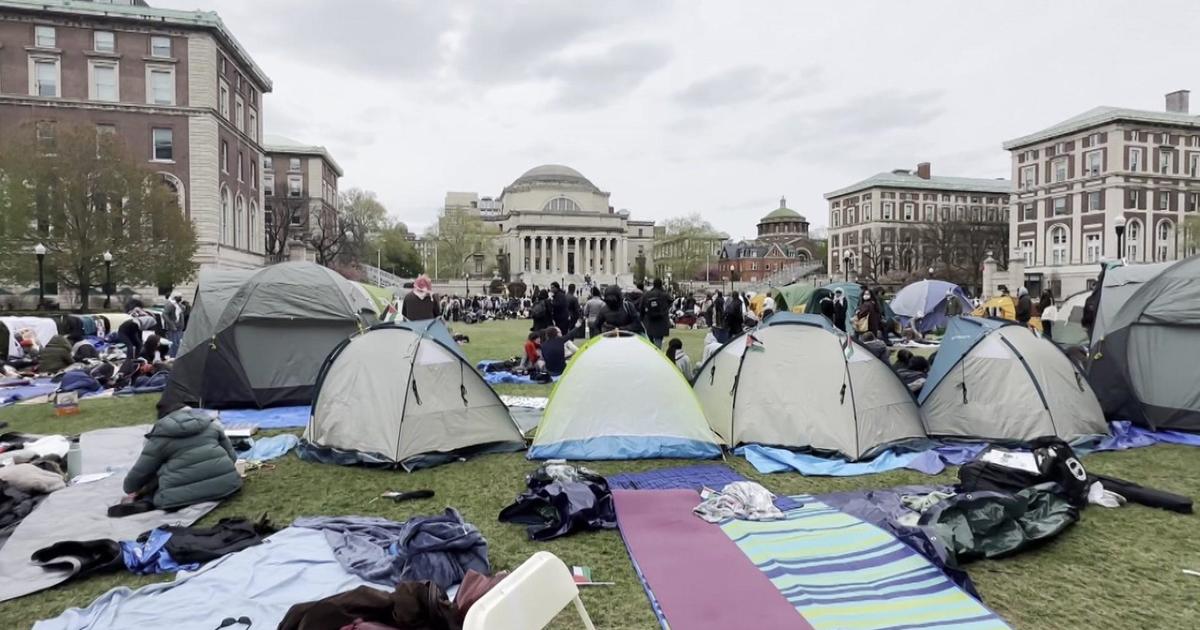Mayor Blasts DOJ's Recommendation For NYPD Monitor Ahead Of Stop-And-Frisk Decision
NEW YORK (CBSNewYork/AP) -- The U.S. Justice Department has tread carefully into the debate over the NYPD's stop, question and frisk policy, telling a federal judge that it strongly endorses an independent monitor to oversee changes should she decide civil rights violations have occurred.
Lawyers for the Justice Department filed a 21-page statement of interest in the case late Wednesday, the last day to file paperwork. The court papers say the government was weighing in "only in order to assist the court on the issue of remedy, and only should it find that NYPD's stop-and-frisk practices are unlawful.'' It did not say whether it believed the practices to be unconstitutional.
"The department has extensive experience working to ensure that police services are delivered in an effective, constitutional manner,'' the Justice Department said in a statement following the court filing. "Our statement of interest is intended to share our experience relevant to fashioning an appropriate remedy, should it be required.''
Mayor Blasts DOJ's Recommendation For NYPD Monitor Ahead Of Stop-And-Frisk Decision
On Thursday, Mayor Michael Bloomberg lambasted the idea of installing a federal monitor to oversee the NYPD.
He called the possibility of a federal monitor a terrible idea, saying it would be even more disruptive than an inspector general proposed by the City Council.
"The NYPD has brought crime down in ways that nobody, nobody thought was possible. The NYPD has just done a spectacular job and this makes no sense whatsoever when lives are on the line to try to change the rules and hamper the police department from doing their job," Bloomberg told reporters, including WCBS 880's Rich Lamb. "They comply with the law; we are 100 percent confident in that.''
The Justice Department wrote that its experience with federal monitors in other cities makes officers' jobs safer and increases the ability of the department to fight crime.
"I don't know what experience they have on the streets of New York City. We have [an] enormous amount of experience. We've had a police department that's been here for well over 100 years, paid for in blood," Bloomberg said. "When you have an organization where it's life and death. You have to have clear responsibility, clear chains of command."
The mayor, who is opposed to an NYPD inspector general, added that after a federal monitor was imposed on Philadelphia's police department, crime went up.
U.S. District Court Judge Shira Sheindlin is considering whether to order reforms to the police policy after a 10-week bench trial in which a dozen people testified that they were stopped by police solely because of their race.
The concern by some is that the Justice Department move will influence the decision of Judge Scheindlin. Civil rights groups involved in the case hope so, CBS 2's Marcia Kramer reported.
"Well, it's a signal to her that the Justice Department cares about this and that's very important," said NYCLU Associate Legal Director Chris Dunn.
About 5 million people have been stopped by New York police in the past decade, most of them black and Hispanic men. Lawyers for the four men who sued say hundreds of thousands of those stops were unconstitutional, and they want a monitor to oversee changes to police department training, supervision and policy.
City lawyers, the mayor and the police commissioner have all argued that the stops are not wrongful, and the policy is a necessary crime-fighting tool that has helped drive down crime to record lows. Several police officials testified at the trial about how stops are conducted, and many officers disputed the witnesses' version of the encounter. In order to stop someone, police need reasonable suspicion, a standard lower than probable cause, which is needed to justify an arrest.
The Justice Department paperwork, first reported by the New York Daily News, did not mention the merits of the other reforms requested.
In its statement, the Justice Department noted that it sought and secured reforms to police misconduct in dozens of law enforcement agencies nationwide, and gave the judge citations to peruse the cases. It singled out as a particular success a consent decree in Pittsburgh in 1997 where reforms were overseen by a monitor until 2002.
"An independent monitor can be essential to ensuring that complex institutional reform is achieved,'' the statement said.
In those cases, the Justice Department took a lead role in litigation and reforms, but it has not in the case against the NYPD. However, it is significant that the government is weighing in on the issue.
City lawyers argued the department does a good job policing itself with an internal affairs bureau, a civilian complaint board and quality assurance divisions.
Judge Scheindlin did not say when she would rule but promised it would be timely.
As for whether the city would appeal the ruling if a monitor is imposed, "it's all hypothetical,'' Bloomberg said. "We feel very strongly that we are doing what's right to protect the public, and we're doing it within the law.''
You May Also Be Interested In These Stories
(TM and © Copyright 2013 CBS Radio Inc. and its relevant subsidiaries. CBS RADIO and EYE Logo TM and Copyright 2013 CBS Broadcasting Inc. Used under license. All Rights Reserved. This material may not be published, broadcast, rewritten, or redistributed. The Associated Press contributed to this report.)



